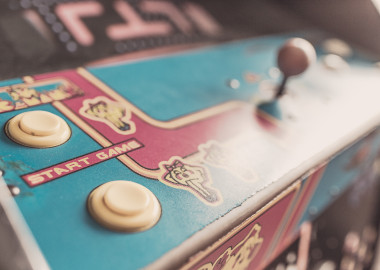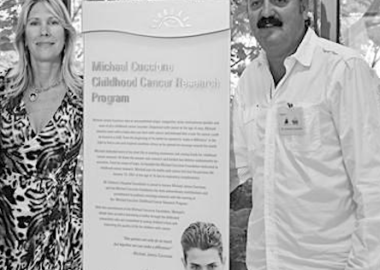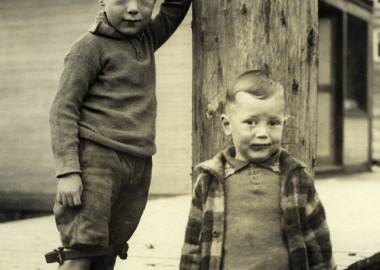
At ECHO Storytelling Agency, we love two things: amazing legacy storytelling and a drink with co-workers and clients after a week of creating it. So we knew we had to write this piece.
The Unique Legacies of Liquor Brands
Observers of liquor marketing since 2010 will have noticed many established brands using legacy storytelling to highlight their rich histories. We love it!
And as we see it, the trend has two clear drivers.
First, the segment includes some of the world’s oldest brands. Yet, unlike automotive or clothing, it’s possible, even expected, in the booze biz to sell the same core product (same colour, same ingredients, same taste) for decades, even centuries. As a result, many liquor brands boast generations of customers from a given family. That’s a history worth exploring and exploiting.

Second, and somewhat counter to the first point, consumer tastes have recently evolved. The explosive growth of craft beer, now expanding to wines and spirits, means legacy brands face a new breed of competitor. These hip upstarts value authenticity and ingenuity above all else — even profit.
Now ask yourself, what main advantage do more established players hold? That’s right, legacy.
Of course, boozy brands have intermittently emphasized history for decades. The difference in the current trend is the injection of grit, struggle, and brutal honesty. ECHO heartily endorses this willingness to get specific, even unflatteringly so, about the troubles in a company’s legacy.
Sleeman’s “Notoriously Good” Campaign
Among the first in on this trend was Canada’s Sleeman Brewery with the innovative Notoriously Good campaign in 2010. Not only did Sleeman admit to its unsavoury past of associating with pirates, smugglers, gangsters and other general lowlifes, it actually bragged about it. Here is a more recent example from this ongoing campaign:
Bacardi Dives Into Legacy, Climbs Back Out
Showing there may be such thing as too much liquor history, Bacardi rum first invested heavily in legacy marketing with 2014’s Untamable Since 1862 campaign but has since shifted gears.
The centrepiece commercial of Bacardi’s initial honest legacy push featured an actor representing the brand while walking confidently uphill. As he climbs, he encounters struggles the brand faced, including fire, earthquakes, prohibition, the Cuban revolution, and the Bacardi family’s eventual exile from Cuba in the 1960s. Finally, our hero settles down for, you guessed it, a drink of classic Bacardi Gold.
However, Bacardi has since shifted to engage younger drinkers with a more youthful twist on the continuing Untamable campaign. But a new slogan, “There’s Nothing in the Way” makes clear reference to the hurdles the company previously cleared to ensure their wide open future.
Stella Artois’ Madcap History Mash-Up
A recent entrant in the honest liquor history trend is Stella Artois. They’ve taken the movement in a surreal, cheeky new direction with 2016’s Be Legacy campaign.
Their first spot emphasizes the humble beginnings of their founder Sébastien Artois, who purchased the brewery in 1708. He is shown selling all his worldly possessions, even his dog, to buy the brewery. It’s a risky, high-stakes gamble he begins after exhorting himself to “wake up.” Except many items and cultural references in the commercial, including neon signs, a retro TV, and a Van Gough painting are wholly anachronistic.
Only partly inspired by their history, what Stella Artois truly communicates is youthful energy and exuberance. The charismatic actor playing their founder and his dramatized struggle to become a successful entrepreneur are easily relatable to modern millennials.
Liquor Legacy Ads Look Back and Forward…plus sideways?
The progression of these campaigns shows how gritty legacy marketing can achieve many goals. It can express history honestly, establish credibility, even increase relatability by suggesting, as Stella does, that we can learn from centuries-old events. As they put it, “What do you want to be remembered for?” What, indeed.
However, Stella’s post-modern historical reimagining is akin to something ECHO is more reluctant to endorse: entirely fictional legacies. But somehow, Somersby Cider, despite being established in 2008, makes it work. Here is an example featuring their entirely made up founder, Lord Somersby. Perhaps it’s fitting from a cider, an upstart growth segment within the liquor business.
Our Last Call
Despite existing in a newly divided market, carved up between those favouring craft sensibilities and those trusting established brands, the legacy players in liquor continue mostly to thrive. Partly, they have done this by accentuating their historic ability to adapt by any means necessary.
No matter how established your brand is, there is an important general lesson in all this. Never be afraid to address past struggles and trust your customers to react positively to your openness.





